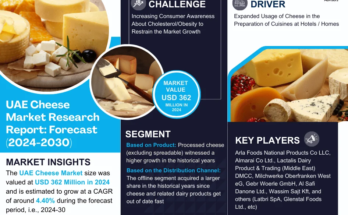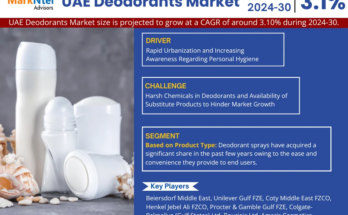According to TechSci Research report, “Automotive Closure Market – Global Industry Size, Share, Trends, Competition Forecast & Opportunities, 2029”, the Global Automotive Closure Market stood at USD 42.64 Billion in 2023 and is anticipated to grow with a CAGR of 6.44% in the forecast period, 2025-2029. The Global Automotive Closure Market is a dynamic sector within the automotive industry that encompasses a range of components, including doors, windows, sunroofs, and convertible roofs. These closures play a crucial role in enhancing vehicle safety, aesthetics, and user experience. The market is driven by a confluence of factors, including technological advancements, consumer preferences, safety regulations, and the industry’s broader shift toward electrification and smart mobility.
One of the notable trends shaping the market is the integration of smart technologies into automotive closures. Manufacturers are increasingly incorporating electronic controls, sensors, and connectivity features to offer users advanced functionalities such as keyless entry, hands-free operation, and gesture control. This trend aligns with the growing demand for connected vehicles and the overall evolution toward autonomous driving.
Safety considerations remain a paramount driver in the Automotive Closure Market. The industry is witnessing a continuous focus on enhancing occupant protection through the integration of advanced safety features in closures. This includes the use of high-strength materials, pedestrian protection mechanisms, and collision avoidance technologies. The adherence to stringent safety standards set by regulatory bodies worldwide, such as the National Highway Traffic Safety Administration (NHTSA) in the United States and Euro NCAP in Europe, shapes the development of safety-centric closure systems.
The shift toward electric and autonomous vehicles is influencing closure designs and functionalities. Electric vehicles (EVs) often feature power-operated closures, contributing to the seamless and sophisticated user experience. Additionally, the trend toward autonomous driving requires closures with integrated sensors and communication systems to enhance safety and adapt to changing driving conditions.
Aesthetic considerations and vehicle design are key factors influencing the Automotive Closure Market. Consumers are increasingly drawn to vehicles with sleek and modern designs, prompting automakers to invest in closures that not only provide functional benefits but also contribute to the overall visual appeal of the vehicle. Flush-mounted door handles, panoramic sunroofs, and seamlessly integrated closures are indicative of this design-focused trend.
The market is also shaped by regional variations, with different markets exhibiting unique preferences and regulatory landscapes. For instance, the North American market often emphasizes safety features and consumer preferences for larger vehicles, while the European market places a strong emphasis on cutting-edge technologies and sustainability.
Browse over market data Figures spread through 180 Pages and an in-depth TOC on “ Global Automotive Closure Market.” @ https://www.techsciresearch.com/report/automotive-closure-market/21988.html
North America stands as a robust and mature market in the Automotive Closure sector. The region is characterized by a high demand for advanced safety features and larger vehicles, such as SUVs and trucks. Stringent safety regulations set by organizations like the National Highway Traffic Safety Administration (NHTSA) drive the integration of cutting-edge safety technologies in closures. Additionally, consumer preferences for innovative designs and the adoption of electric and autonomous vehicles contribute to shaping closure trends in North America.
Europe’s Automotive Closure Market is marked by a strong focus on technology, design aesthetics, and sustainability. European consumers prioritize stylish and efficient vehicles, influencing the integration of aesthetically pleasing closure designs and advanced safety features. The European New Car Assessment Programme (Euro NCAP) plays a significant role in shaping safety standards, impacting the development of side doors with pedestrian protection features. The trend towards electric mobility in Europe further drives innovations in power-operated closures and energy-efficient systems.
The Asia-Pacific region, particularly China, Japan, and South Korea, serves as a dynamic hub for the Automotive Closure Market. The region exhibits a growing automotive market with consumers valuing convenience features and advanced technologies. The demand for power windows, panoramic sunroofs, and electronic sliding doors is on the rise, driven by consumer preferences for tech-savvy and spacious vehicles. Asia-Pacific’s automotive landscape is also influenced by government initiatives promoting electric and eco-friendly vehicles, shaping the adoption of electric closure systems and lightweight materials.
The Middle East and Africa showcase varied trends in the Automotive Closure Market. Wealthier Gulf countries prioritize luxury vehicles, driving the adoption of high-end closure technologies. In contrast, certain regions in Africa may prioritize durability and robust designs due to challenging terrains. Economic considerations, government regulations, and the increasing awareness of safety features contribute to the diverse adoption of automotive closures across the Middle East and Africa.
Understanding these regional insights is crucial for stakeholders in the Automotive Closure Market to tailor their product offerings and strategies according to the unique demands and regulatory environments of each region. The diverse automotive landscapes in North America, Europe, Asia-Pacific, Latin America, and the Middle East and Africa present both challenges and opportunities for manufacturers and suppliers in the industry.
Major companies operating in the Global Automotive Closure Market are:
- Autoliv Inc .
- Delphi Automotive
- ZF Friedrichshafen
- ITW Automotive Products Gmbh
- Daimler-AG
- Hyundai Motor
- Special Devices Inc
- Far Europe Holding Limited
- Tokai Rika Co. Ltd
- Iron Force Industrial Co
To Download FREE Sample Pages of this Report📥 @ https://www.techsciresearch.com/sample-report.aspx?cid=21988
Customers can also request 10% free customization in this report.
“The Automotive Closure Market is undergoing a transformative phase driven by a harmonious integration of safety advancements, smart technologies, and sustainability measures. The increasing demand for seamless user experiences, coupled with regional variations and the industry’s pursuit of electrification and autonomy, underscores the need for agile strategies. As automakers navigate these dynamics, collaboration, innovation, and a keen understanding of consumer preferences will be pivotal for success in this rapidly evolving market,” said Mr. Karan Chichi, Research Director with TechSci Research, a research-based management consulting firm.
“Automotive Closure Market – Global Industry Size, Share, Trends Opportunity, and Forecast, Segmented By Application Information (Sunroof, Power Window, Side Door, Sliding Door, Convertible Roof), By Component (ECU, Switch, Motor & Actuator, Latch, Relay), By Type (Manual, Powered), By Region, Competition, 2019-2029”, has evaluated the future growth potential of Global Automotive Closure Market and provides statistics & information on market size, structure, and future market growth. The report intends to provide cutting-edge market intelligence and help decision-makers take sound investment decisions. Besides, the report also identifies and analyzes the emerging trends along with essential drivers, challenges, and opportunities in the Global Automotive Closure Market.
You may also read:
Gasoline Direct Injection (GDI) Market | [2029] Exploring Potential, Growth, Future & Trends
Automotive Seat Belt Pretensioner Market Analysis, Development [2029], Key Terms
Variable Valve Timing (VVT) Market [2029] – Analysis, Trends, & Insights
Table of Content-Automotive Closure Market
- Introduction
1.1. Product Overview
1.2. Key Highlights of the Report
1.3. Market Coverage
1.4. Market Segments Covered
1.5. Research Tenure Considered
- Research Methodology
2.1. Objective of the Study
2.2. Baseline Methodology
2.3. Key Industry Partners
2.4. Major Association and Secondary Sources
2.5. Forecasting Methodology
2.6. Data Triangulation & Validation
2.7. Assumptions and Limitations
- Executive Summary
3.1. Market Overview
3.2. Market Forecast
3.3. Key Regions
3.4. Key Segments
- Impact of COVID-19 on Global Automotive Closure Market
- Global Automotive Closure Market Outlook
5.1. Market Size & Forecast
5.1.1. By Value
5.2. Market Share & Forecast
5.2.1. By Application Information Market Share Analysis (Sunroof, Power Window, Side Door, Sliding Door, Convertible Roof)
5.2.2. By Component Market Share Analysis (ECU, Switch, Motor & Actuator, Latch, Relay)
5.2.3. By Type Market Share Analysis (Manual, Powered)
5.2.4. By Regional Market Share Analysis
5.2.4.1. Asia-Pacific Market Share Analysis
5.2.4.2. Europe & CIS Market Share Analysis
5.2.4.3. North America Market Share Analysis
5.2.4.4. South America Market Share Analysis
5.2.4.5. Middle East & Africa Market Share Analysis
5.2.5. By Company Market Share Analysis (Top 5 Companies, Others – By Value, 2023)
5.3. Global Automotive Closure Market Mapping & Opportunity Assessment
5.3.1. By Application Information Market Mapping & Opportunity Assessment
5.3.2. By Component Market Mapping & Opportunity Assessment
5.3.3. By Type Market Mapping & Opportunity Assessment
5.3.4. By Regional Market Mapping & Opportunity Assessment
- Asia-Pacific Automotive Closure Market Outlook
6.1. Market Size & Forecast
6.1.1. By Value
6.2. Market Share & Forecast
6.2.1. By Application Information Market Share Analysis
6.2.2. By Component Market Share Analysis
6.2.3. By Type Market Share Analysis
6.2.4. By Country Market Share Analysis
6.2.4.1. China Market Share Analysis
6.2.4.2. India Market Share Analysis
6.2.4.3. Japan Market Share Analysis
6.2.4.4. Indonesia Market Share Analysis
6.2.4.5. Thailand Market Share Analysis
6.2.4.6. South Korea Market Share Analysis
6.2.4.7. Australia Market Share Analysis
6.2.4.8. Rest of Asia-Pacific Market Share Analysis
6.3. Asia-Pacific: Country Analysis
6.3.1. China Automotive Closure Market Outlook
6.3.1.1. Market Size & Forecast
6.3.1.1.1. By Value
6.3.1.2. Market Share & Forecast
6.3.1.2.1. By Application Information Market Share Analysis
6.3.1.2.2. By Component Market Share Analysis
6.3.1.2.3. By Type Market Share Analysis
6.3.2. India Automotive Closure Market Outlook
6.3.2.1. Market Size & Forecast
6.3.2.1.1. By Value
6.3.2.2. Market Share & Forecast
6.3.2.2.1. By Application Information Market Share Analysis
6.3.2.2.2. By Component Market Share Analysis
6.3.2.2.3. By Type Market Share Analysis
6.3.3. Japan Automotive Closure Market Outlook
6.3.3.1. Market Size & Forecast
6.3.3.1.1. By Value
6.3.3.2. Market Share & Forecast
6.3.3.2.1. By Application Information Market Share Analysis
6.3.3.2.2. By Component Market Share Analysis
6.3.3.2.3. By Type Market Share Analysis
6.3.4. Indonesia Automotive Closure Market Outlook
6.3.4.1. Market Size & Forecast
6.3.4.1.1. By Value
6.3.4.2. Market Share & Forecast
6.3.4.2.1. By Application Information Market Share Analysis
6.3.4.2.2. By Component Market Share Analysis
6.3.4.2.3. By Type Market Share Analysis
6.3.5. Thailand Automotive Closure Market Outlook
6.3.5.1. Market Size & Forecast
6.3.5.1.1. By Value
6.3.5.2. Market Share & Forecast
6.3.5.2.1. By Type Market Share Analysis
6.3.5.2.2. By Component Market Share Analysis
6.3.5.2.3. By Type Market Share Analysis
6.3.6. South Korea Automotive Closure Market Outlook
6.3.6.1. Market Size & Forecast
6.3.6.1.1. By Value
6.3.6.2. Market Share & Forecast
6.3.6.2.1. By Application Information Market Share Analysis
6.3.6.2.2. By Component Market Share Analysis
6.3.6.2.3. By Type Market Share Analysis
6.3.7. Australia Automotive Closure Market Outlook
6.3.7.1. Market Size & Forecast
6.3.7.1.1. By Value
6.3.7.2. Market Share & Forecast
6.3.7.2.1. By Application Information Market Share Analysis
6.3.7.2.2. By Component Market Share Analysis
6.3.7.2.3. By Type Market Share Analysis




